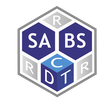Overview
Introduction
Your training begins with an immersive three-week module that lays the foundation for a year-long, team-based open source software development project. All of our modules are designed to foster both in-depth learning and cohort-building, and rely on team work and collaboration. We have woven best practices in sustainable and reproducible research into all aspects of your scientific training programme. These aspects have been developed in close collaboration with the Software Sustainability Institute.
The academic training programme you will experience mirrors the interdisciplinary breadth of biomedicine. In addition to the module on Sustainable and Reproducible Research, in Term 1 ("Michaelmas") you will learn about core theoretical and methodological techniques in scientific computing and data science underpinning the three themes. You will also have the opportunity to experience one week in a 'wet' laboratory, where you will gain insight into both the opportunities and complexities of modern biological experiments. Term 2 (Hilary) begins with the Life Skills module and is followed by a second 3-week module on software engineering. Following this, you will embark on two short, Masters-level rotation project in one or two of the three research themes.
Timeline
The SABS:R3 programme is four years long:
Year 1. In the Doctoral Training Centre (DTC), you will be trained in our various intensive taught Modules in the first terms, covering the breadth of topics in biomedicine.
At the start of second term, you will have the Life Skills module, covering a variety of aspects of life as a research student. The next three weeks will be an opportunity to return to your software engineering project.
After your taught modules, you move to your academic supervisors' Departments to carry out two Research Projects, each about 13 weeks long, being guided by both your academic and industrial supervisors. In addition, you have 4 weeks of vacation.
Throughout the first year you will also meet weekly in a team with 3-4 other students on an Open Source Software project in one of our three main research themes:
- computational and data-driven structural approaches to drug discovery;
- cellular microscopy and image analysis underpinning biomedical discovery; and
- physiological modelling underpinning biomedical discovery.
It's worth noting that many of our SABS:R3 supervisors are themselves responsible for open source software in all three of our domains.
Towards the end of the first year, you choose which of the two short projects you'd like to do as your DPhil doctoral research project. Also at the end of the first year, you have an opportunity to present to the representatives of our industrial partners all the exciting software you have developed in your software groups.
Towards the end of Year 1, you will leave the DTC to start your DPhil in your chosen supervisor's group and Department as a "Probationary Research Student".
Year 2. You continue your DPhil, and towards the end of this year you have your first formal hurdle, called "Transfer of Status", in which you prepare a report and have an internal oral exam. Upon passing Transfer, you become an official DPhil Student.
Year 3. You continue your doctoral research, and towards the end of this year you have your second formal hurdle, called "Confirmation of Status", preparing an updated research report and again having an internal oral exam.
Year 4. You continue working on your DPhil research, and in the last 3-4 months you write your doctoral thesis. After submitting your thesis, you will have your formal DPhil viva, being examined by two subject-area experts, one from the University of Oxford (your 'internal' examiner) and one from outside the university (your 'external' examiner).
Throughout your doctorate you will also receive training in Research and Professional Skills, including:
- Presentation Skills
- RRI and Ethics
- Entrepreneurship
- Impact Beyond Academia
- Career Development Skills
- How to Write a Thesis



